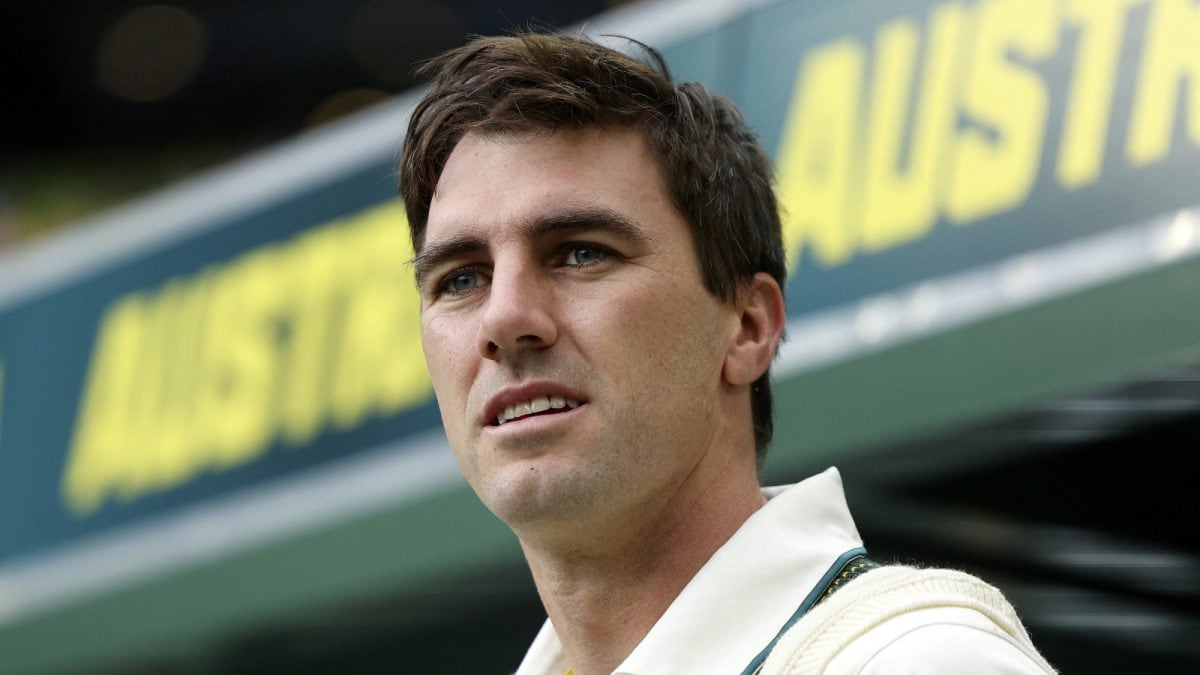 |
|
The article centers around Australian cricket captain Pat Cummins' vehement denial of statements attributed to him regarding India's perceived advantage in the ongoing ICC Champions Trophy. A digital sports platform, Code Cricket, had published a post alleging that Cummins criticized the ICC for allowing India to play all their matches at a single venue, Dubai, while other teams were required to travel between Pakistan and Dubai. The publication further claimed that Cummins deemed the tournament a 'farce' and expressed dissatisfaction with India's ability to seemingly 'pick and choose' their match locations. Cummins swiftly responded via social media, explicitly stating, “I have definitely never said this,” directly addressing the sports platform. The controversy arose due to India's reluctance to travel to Pakistan because of prevailing political tensions. Consequently, the Champions Trophy 2025 adopted a hybrid model, wherein India's matches are being hosted in Dubai. This arrangement, agreed upon by the Board of Control for Cricket in India (BCCI), the Pakistan Cricket Board (PCB), and the ICC, stipulates that the two neighboring countries will not play in each other's territories during global tournaments. This has resulted in all of India's matches, potentially including the final, being held at the Dubai International Stadium, creating a logistical disparity for other participating teams. Cummins, despite being absent from the tournament due to an ankle injury, clarified his actual stance. He acknowledged in an interview with Yahoo Australia that while it was beneficial for the tournament to proceed, India did gain a 'huge advantage' by playing on the same ground. This, he noted, further bolstered their already strong position. The article highlights the complexities arising from political tensions impacting sporting events and the resulting logistical challenges in ensuring a level playing field. The accusations leveled against Cummins and his subsequent denial underscore the potential for misinterpretation and the importance of accurate reporting in the realm of sports journalism. The situation also underscores the intricacies of international cricket administration, where political considerations often necessitate compromises that can affect the competitive balance of tournaments. Cummins' response demonstrates the power of athletes to directly address misinformation and control their public narrative in the age of social media.
The core issue revolves around the perceived unfairness of the tournament structure, where India benefits from playing all its matches in Dubai, while other teams face the burden of travel between Dubai and Pakistan. This discrepancy stems from the long-standing political tensions between India and Pakistan, which have impacted sporting relations between the two nations. The hybrid model, while allowing India to participate and the tournament to proceed, has created a competitive imbalance. It is argued that playing all matches in familiar conditions provides India with a significant advantage, particularly in terms of acclimatization, pitch familiarity, and logistical ease. This perceived advantage has drawn criticism, and the alleged misquotes attributed to Cummins suggest a wider concern among players and observers regarding the fairness of the tournament format. Furthermore, the incident underscores the challenges faced by sports journalists in accurately representing athletes' views and the potential consequences of misreporting. In an era of instant communication and social media, athletes are increasingly able to directly engage with the public and correct inaccuracies. Cummins' swift response serves as a reminder of the importance of journalistic integrity and the need to verify information before publication. The article also touches upon the broader issue of political influence in sports. The decision to adopt a hybrid model for the Champions Trophy reflects the complex interplay between sporting ideals and political realities. While sports are often seen as a unifying force, they can also be susceptible to political pressures and controversies. The India-Pakistan relationship has consistently affected cricketing ties, leading to cancellations of bilateral series and the adoption of alternative arrangements for major tournaments. This situation highlights the delicate balancing act required by sports governing bodies to navigate political sensitivities while striving to maintain fair and competitive events.
The narrative extends beyond a simple denial of misquotes. It reveals the ongoing debate about the impact of political factors on sporting events and the subsequent repercussions for competitive integrity. The fact that Cummins felt compelled to issue a denial suggests that the initial claims resonated with a certain segment of the audience, possibly reflecting existing concerns about India's influence in international cricket and the perceived preferential treatment it receives. The controversy also sheds light on the role of social media in amplifying both accurate and inaccurate information. The speed at which the alleged misquotes spread, and Cummins' subsequent rebuttal, underscores the power of social media to shape public opinion and influence the narrative surrounding sporting events. Furthermore, the incident raises questions about the motivations behind the initial publication of the alleged misquotes. Whether it was a deliberate attempt to generate controversy or a genuine misunderstanding, the episode highlights the potential for media outlets to misrepresent athletes' views and create unnecessary conflict. The long-term implications of this incident are difficult to predict. However, it is likely to contribute to the ongoing scrutiny of India's role in international cricket and the perceived advantages it enjoys. It may also lead to increased pressure on the ICC to ensure greater fairness and transparency in the organization of future tournaments. Finally, the incident serves as a reminder of the importance of media literacy and the need for consumers to critically evaluate information before accepting it as fact. In an age of information overload, it is crucial to be discerning and to seek out multiple sources of information before forming an opinion.
